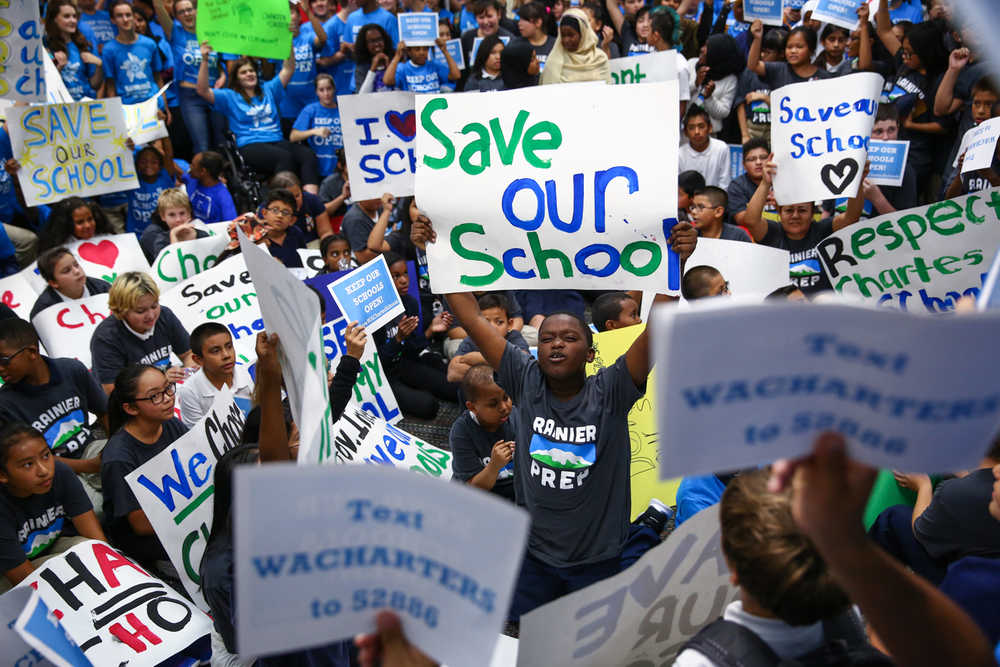SEATTLE — The state auditor has found sloppy bookkeeping, cash flow problems and a host of other issues at Washington’s first charter school.
The report comes on the same day that the Washington Supreme Court said it will allow more time to file a motion asking the justices to reconsider or clarify their recent ruling that the voter-approved law allowing charter schools in the state is unconstitutional.
In the report issued Monday, the auditor says First Place Scholars needs to do a much better job of following state laws and tracking how taxpayer dollars are spent. The audit was requested by the charter commission, which has been tracking problems at the school since it opened its doors in fall 2014.
The audit is just the latest in a series of challenges for charter schools in Washington state.
Acting State Auditor Jan Jutte says most of the problems at First Place were related to inexperience in following state laws. But some were deeper financial problems.
Jutte characterized the problems as sloppiness, but said they were not unusual for a startup organization.
Among the problems identified included:
• Teachers without proper certification at the beginning of the school year.
• Less enrollment than expected, resulting in an overpayment by the state to the school of more than $200,000. The state distributes money based on estimated enrollment, but other issues added to the overpayment, the audit found.
• Inadequate record keeping on revenues and expenditures.
• Confusion over what money was spent by the school and what was spent by the nonprofit that supports the school and whether the charter school used public dollars for nonprofit expenses.
• The charter board did not comply with the Open Public Meetings Act.
• Cash flow problems that left the school in danger of not having enough money to cover its payroll at one point.
Cheryl Thresher, the schools program auditor manager, saw evidence that the school didn’t understand some state rules.
“They weren’t aware of some of the responsibilities that went with receiving public funding,” Thresher said.
School leader Linda Whitehead, who took over just before the audit, agreed that the crux of the problem was the transition from a private to a public school.
“Moving forward, we have remedies in place. We have policies and procedures in practice, wrapped around the policies of (the Office of the Superintendent of Public Instruction),” Whitehead said.
Eight more charter schools opened their doors this fall. Jutte said the lessons learned by First Place could help the other schools.
The audit was completed before the Washington Supreme Court decided on Sept. 4 the voter-approved charter school law is unconstitutional.
Washington Attorney General Bob Ferguson said more than a week ago that his office will ask the court to reconsider its ruling. Spokesman Peter Lavallee said they expect to file the motion by Thursday.
The high court’s opinion was set to take effect later this month, but will be put on hold until the court rules on the state’s request for reconsideration. There is no timeline on when the court may rule on the request.
The new deadline for filing a request for reconsideration of the ruling is Oct. 23. The original deadline was this week.
Since Jan. 1, 2000, the Supreme Court has received 545 motions for reconsideration following opinions issued by the court. Of those request, 23 motions were granted or granted in part, according to the court’s communications office.

